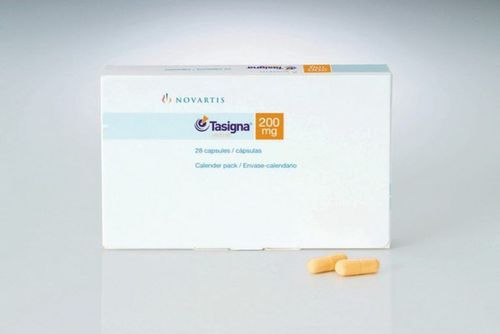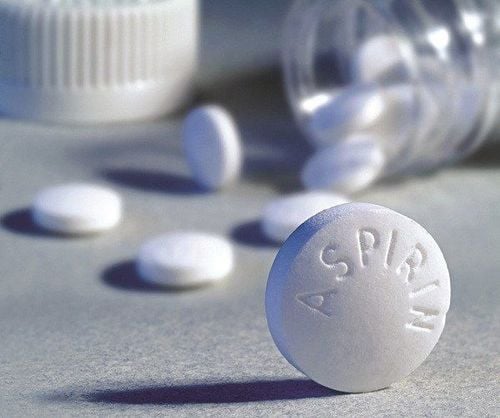This is an automatically translated article.
People with coronary artery disease usually die within 24 hours of the onset of angina, if they can survive, they will also leave dangerous sequelae. The main risk factors for coronary artery disease include being overweight, family history, smoking, dyslipidemia as well as having diabetes and hypertension... Therefore, it is important to take preventive measures. Prevention of coronary heart disease is extremely important.
1. How to prevent coronary artery disease?
Coronary artery disease is described as a decrease in blood flow through the coronary arteries, the cause of which is impaired blood flow due to atherosclerotic plaques. Clinical manifestations of coronary artery disease are silent myocardial ischemia, angina pectoris, acute coronary syndrome and sudden cardiac death.
The diagnosis of coronary artery disease is usually based on clinical signs, electrocardiogram, stress testing or coronary angiography. According to statistics, up to one-third of patients with coronary artery disease die within 24 hours of the onset of angina, if they can survive, they will leave serious sequelae.
The main risk factors for coronary artery disease include being overweight, family history, smoking, dyslipidemia as well as having a history of diabetes and hypertension... Therefore, implementation Effective measures to prevent coronary heart disease are as follows:
For patients with acute myocardial infarction, after discharge from the hospital, they should be counseled on physical activities, dietary and lifestyle changes, drugs for the secondary prevention of cardiovascular diseases. Control body mass index: Obesity is a risk factor for coronary artery disease. Therefore, to prevent coronary artery disease, patients need to have a reasonable body index by eating healthy and exercising regularly. Quit smoking: This is an important factor that helps patients reduce the risk of recurrent myocardial infarction. Because when smoking, the oxygen level in the blood will decrease, causing the artery walls to weaken and severely damage. After a long period of quitting smoking, the risk of a recurrent heart attack is reduced by half compared to a patient who still smokes. Control blood pressure in the normal range: Controlling blood pressure in the normal range is very important for the prevention of coronary heart disease and other cardiovascular diseases. Therefore, it is recommended to maintain blood pressure at an average level, namely systolic blood pressure from 90 - 140 mmHg, diastolic blood pressure from 60 - 90 mmHg. Treatment of diabetes: Tight control of blood sugar with insulin or oral hypoglycemic drugs and a diet to achieve HbA1C are important in preventing coronary artery disease. Treatment of dyslipidemia: Patients with dyslipidemia should eat a diet containing less cholesterol and saturated fat, but should eat more soluble fiber, vegetables and fruits. In addition to the diet can treat dyslipidemia with statin drugs to increase the most effective. Moderate exercise: For patients with acute myocardial infarction, after recovery should exercise in moderation, gently and increase normal daily activities such as gardening,... Antioxidants: Use vitamins, antioxidants such as vitamins E, C... however should not be used after acute myocardial infarction for secondary prevention.

Luyện tập thể thao vừa sức giúp hỗ trợ ngăn ngừa bệnh động mạch vành
2. Recommendations on periodic medical examination/screening for at-risk subjects?
According to research for patients at risk for coronary artery disease or at risk for diabetes, chronic kidney disease is best treated with aggressive coronary artery disease risk factors like those patients with clinical manifestations.
Watch now:
Coronary Disease Screening (Part 1) Coronary Disease Screening (Part 2) Coronary Disease Screening (Part 3) However, coronary artery disease risk factor interventions only effective in high-risk patients. Therefore, it is important to detect high-risk patients. Subjects with risk factors who should undergo routine physical examination to screen for coronary artery disease include:
All young adults aged 20 to older should be screened for coronary artery disease. Especially the group of people over 40 years old should be screened. As for those at lower risk groups under the age of 40, they should also be examined and screened because coronary artery disease forms and progresses for a long time, starting from atherosclerotic plaques in the coronary arteries and then growing large. day by day for many years. People with a history of chronic diseases such as hypertension, dyslipidemia or diabetes should be screened for coronary artery disease and other cardiovascular diseases...; People with a history or long-term smokers; fat; If you have an immediate family member with coronary artery disease, you should also be screened because these are considered risk factors for the disease. People who have had a heart attack should have regular check-ups and lifestyle changes to prevent recurrence. Simultaneously assess and control risk factors for coronary artery disease over a period of 3-5 years. Coronary artery disease is a dangerous disease and can leave complications if not examined and treated promptly. For patients with high blood pressure or high blood cholesterol or a combination of risk factors, the patient should be treated with medication. In addition, patients need to follow a reasonable diet, exercise regularly and harmful habits should be adjusted.
In order to help patients screen and prevent coronary heart disease early, Vinmec International General Hospital has deployed many packages of cardiovascular and coronary screening. From the results of that examination, the doctor will give timely treatment, avoiding dangerous complications.
Accordingly, the subjects recommended for coronary examination include: Customers with a history of hypertension, diabetes, dyslipidemia, smoking, obesity,... Family history Having an immediate family member such as a parent or sibling with coronary heart disease is also considered a risk factor for coronary heart disease. In particular, elderly patients should be screened for coronary heart disease early due to age factors.
Please dial HOTLINE for more information or register for an appointment HERE. Download MyVinmec app to make appointments faster and to manage your bookings easily.













